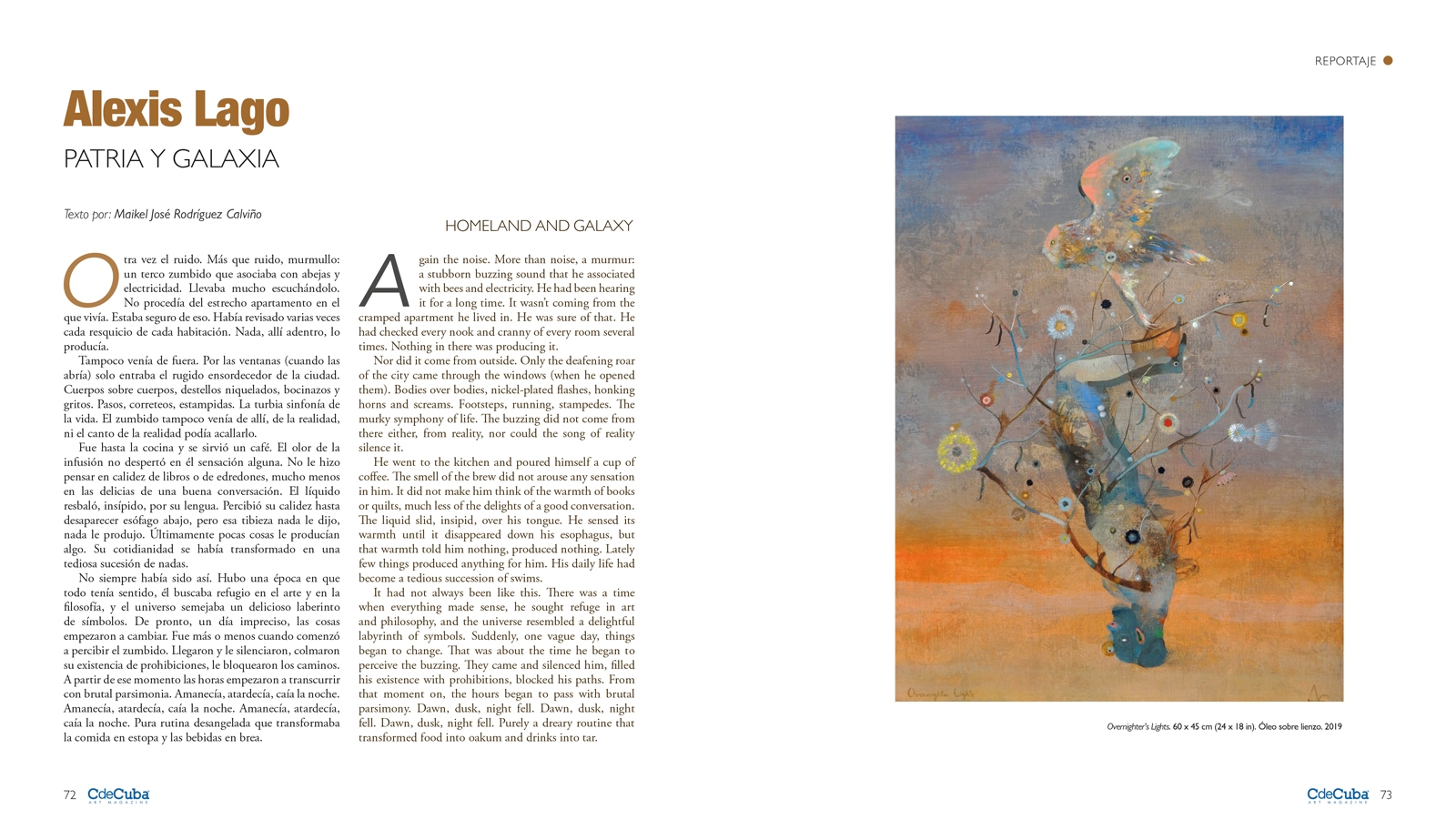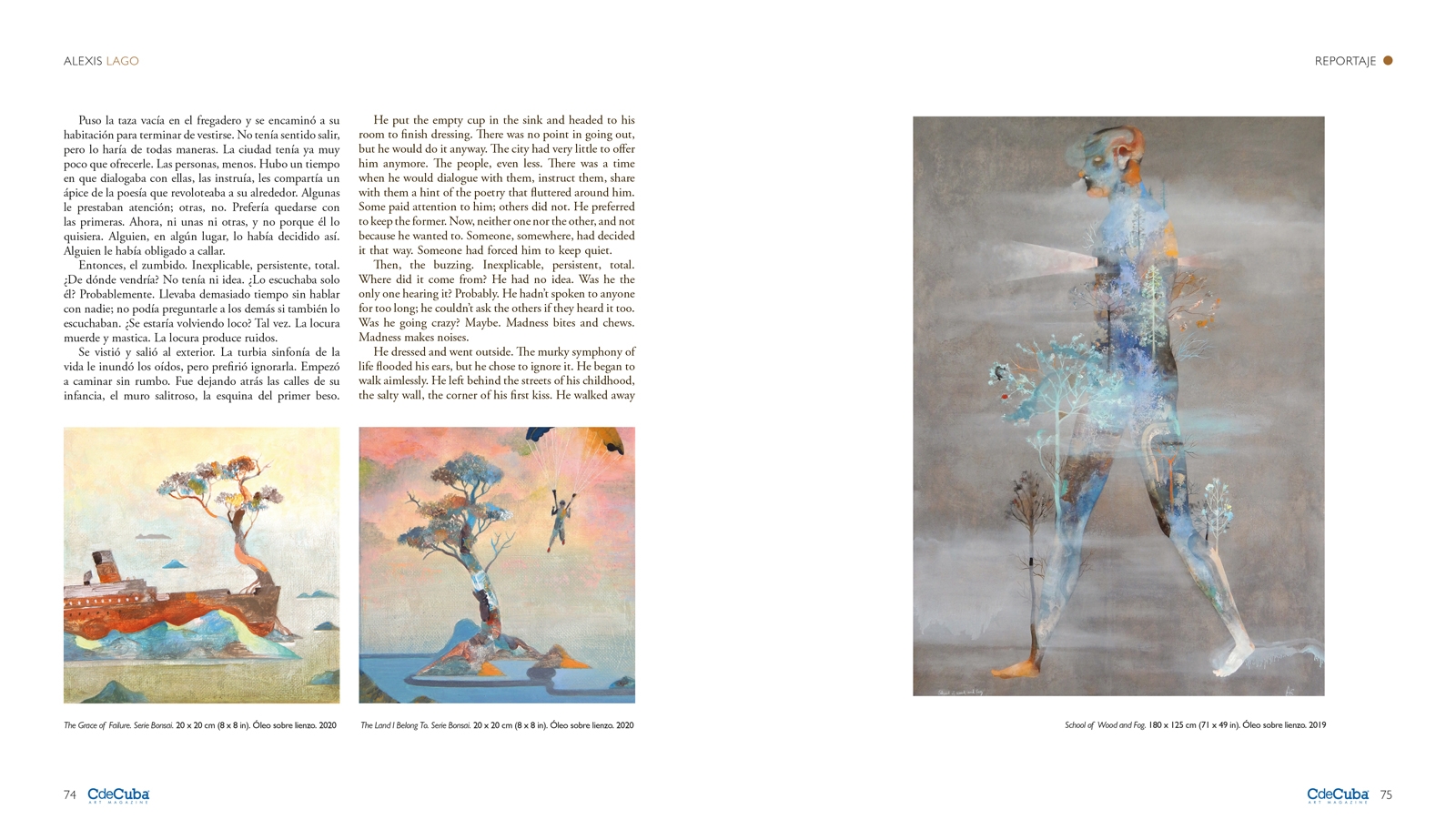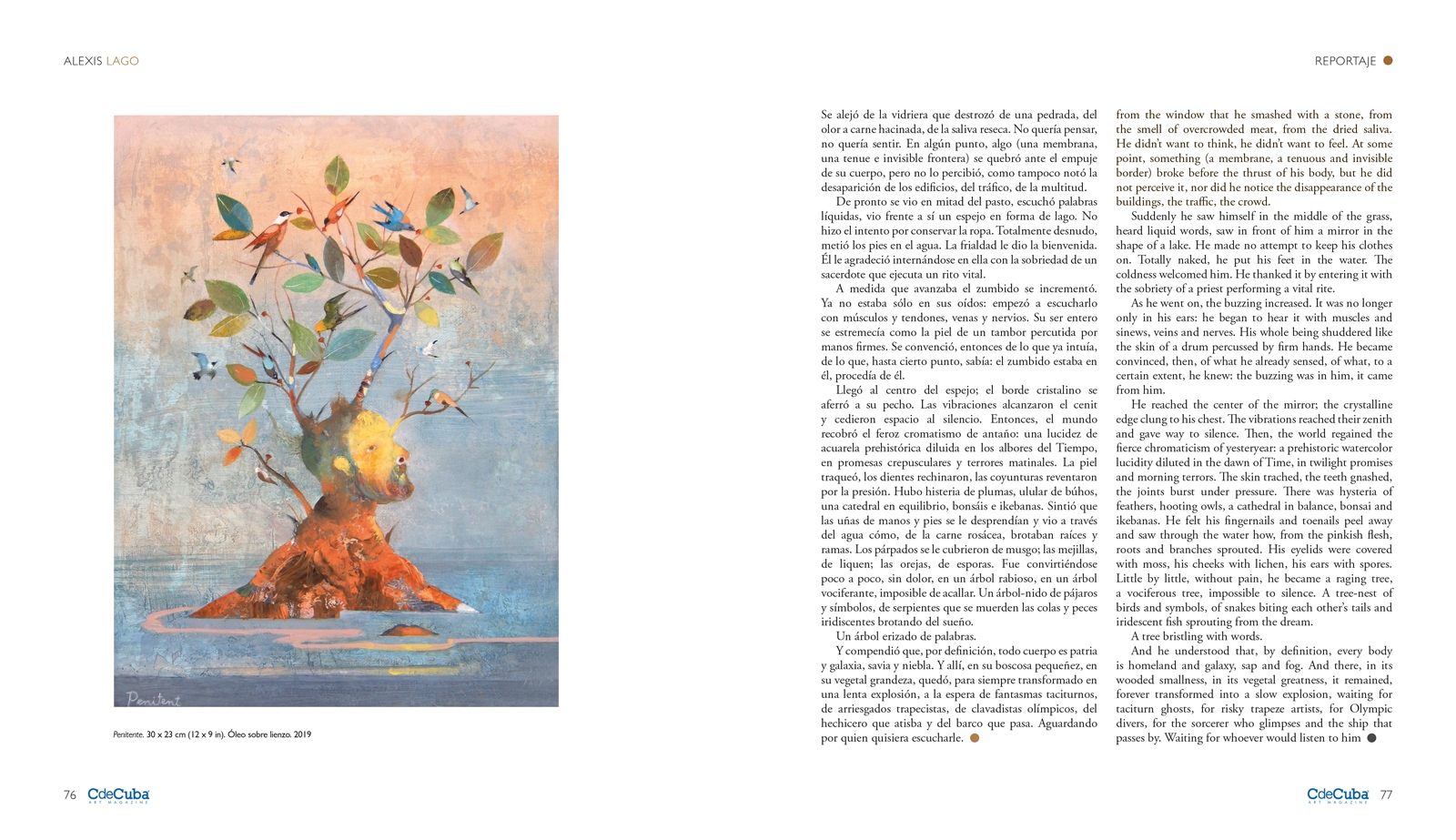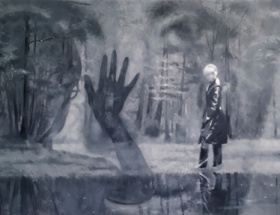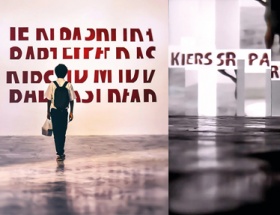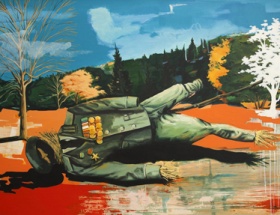Homeland and Galaxy
Por Maikel José Rodríguez Calviño
Again the noise. More than noise, a murmur: a stubborn buzzing sound that he associated with bees and electricity. He had been hearing it for a long time. It wasn’t coming from the cramped apartment he lived in. He was sure of that. He had checked every nook and cranny of every room several times. Nothing in there was producing it.
Nor did it come from outside. Only the deafening roar of the city came through the windows (when he opened them). Bodies over bodies, nickel-plated flashes, honking horns and screams. Footsteps, running, stampedes. The murky symphony of life. The buzzing did not come from there either, from reality, nor could the song of reality silence it.
He went to the kitchen and poured himself a cup of coffee. The smell of the brew did not arouse any sensation in him. It did not make him think of the warmth of books or quilts, much less of the delights of a good conversation. The liquid slid, insipid, over his tongue. He sensed its warmth until it disappeared down his esophagus, but that warmth told him nothing, produced nothing. Lately few things produced anything for him. His daily life had become a tedious succession of swims.
It had not always been like this. There was a time when everything made sense, he sought refuge in art and philosophy, and the universe resembled a delightful labyrinth of symbols. Suddenly, one vague day, things began to change. That was about the time he began to perceive the buzzing. They came and silenced him, filled his existence with prohibitions, blocked his paths. From that moment on, the hours began to pass with brutal parsimony. Dawn, dusk, night fell. Dawn, dusk, night fell. Dawn, dusk, night fell. Purely a dreary routine that transformed food into oakum and drinks into tar.
He put the empty cup in the sink and headed to his room to finish dressing. There was no point in going out, but he would do it anyway. The city had very little to offer him anymore. The people, even less. There was a time when he would dialogue with them, instruct them, share with them a hint of the poetry that fluttered around him. Some paid attention to him; others did not. He preferred to keep the former. Now, neither one nor the other, and not because he wanted to. Someone, somewhere, had decided it that way. Someone had forced him to keep quiet.
Then, the buzzing. Inexplicable, persistent, total. Where did it come from? He had no idea. Was he the only one hearing it? Probably. He hadn’t spoken to anyone for too long; he couldn’t ask the others if they heard it too. Was he going crazy? Maybe. Madness bites and chews. Madness makes noises.
He dressed and went outside. The murky symphony of life flooded his ears, but he chose to ignore it. He began to walk aimlessly. He left behind the streets of his childhood, the salty wall, the corner of his first kiss. He walked away from the window that he smashed with a stone, from the smell of overcrowded meat, from the dried saliva. He didn’t want to think, he didn’t want to feel. At some point, something (a membrane, a tenuous and invisible border) broke before the thrust of his body, but he did not perceive it, nor did he notice the disappearance of the buildings, the traffic, the crowd.
Suddenly he saw himself in the middle of the grass, heard liquid words, saw in front of him a mirror in the shape of a lake. He made no attempt to keep his clothes on. Totally naked, he put his feet in the water. The coldness welcomed him. He thanked it by entering it with the sobriety of a priest performing a vital rite.
As he went on, the buzzing increased. It was no longer only in his ears: he began to hear it with muscles and sinews, veins and nerves. His whole being shuddered like the skin of a drum percussed by firm hands. He became convinced, then, of what he already sensed, of what, to a certain extent, he knew: the buzzing was in him, it came from him.
He reached the center of the mirror; the crystalline edge clung to his chest. The vibrations reached their zenith and gave way to silence. Then, the world regained the fierce chromaticism of yesteryear: a prehistoric watercolor lucidity diluted in the dawn of Time, in twilight promises and morning terrors. The skin trached, the teeth gnashed, the joints burst under pressure. There was hysteria of feathers, hooting owls, a cathedral in balance, bonsai and ikebanas. He felt his fingernails and toenails peel away and saw through the water how, from the pinkish flesh, roots and branches sprouted. His eyelids were covered with moss, his cheeks with lichen, his ears with spores. Little by little, without pain, he became a raging tree, a vociferous tree, impossible to silence. A tree-nest of birds and symbols, of snakes biting each other’s tails and iridescent fish sprouting from the dream.
A tree bristling with words.
And he understood that, by definition, every body is homeland and galaxy, sap and fog. And there, in its wooded smallness, in its vegetal greatness, it remained, forever transformed into a slow explosion, waiting for taciturn ghosts, for risky trapeze artists, for Olympic divers, for the sorcerer who glimpses and the ship that passes by. Waiting for whoever would listen to him.
